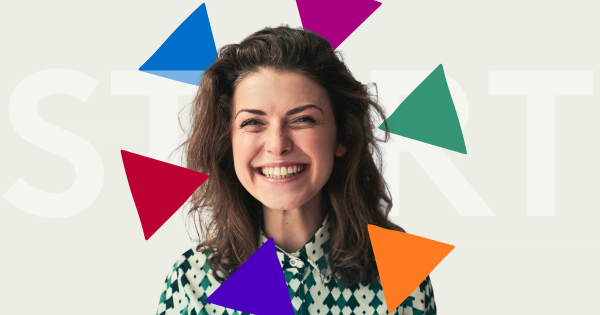Creating value from innate potential

What is human potential beyond the abstract concept, and can we deliberately use it?
Potential. One of the words that best encapsulates the feeling of hope and frustration in equal measures. A promise, a possibility, a ‘not quite’. A latent ability that may or may not be developed; that may or may not come into being.
Whoever has heard the words "You've got a lot of potential" may remember how that momentary high of confidence was followed by the inevitable question, "What am I missing?" The same way that whoever has seen a student or a new hire full of potential may have felt that all the ingredients were there, but they were not there just yet.
From the humanists going on about everyone's capability to self-actualise and achieve potential, to inspirational boards on the wall calling staff to reach their full potential; the word seems to be everywhere. Yet, there is not much out there about what exactly it is made of. There is a 'how' missing. After all, what exactly is it beyond the abstract concept? What makes up this capability of a human being to transcend itself to become something it is yet to be – and how can we use it?
What is potential made of?
Every human being is born with a powerful toolkit. A set of innate characteristics that influence our choices and behaviours throughout life, which will ultimately create the realities we manifest to ourselves. The so-called realised potential.
These innate tools that are at the root of all human competence are character qualities. We are all born creative, resilient, curious, adaptable, independent, confident, courageous, and with plenty of other immeasurably powerful attributes. They affect the actions we take, the reactions we have, and how we show up and interact with the world – from our early years playing catch in the back yard to later in life throughout education, at work, in our community and our personal lives.
As we grow up, we learn to dial them up or dial them down according to our environments and experiences. So, the qualities we practice the most are reflected in everything we do, and the ones we practice the least are often forgotten or believed to be absent. The trick is that none of these qualities are absent, and they are often the ones we need to practice once again to help us get back on track towards where we desire to be.
Our innate qualities make up our potential to become whomever we choose to be and go as far as we wish to go – if only we develop them.
How can we ‘use’ it?
The beauty of manifesting potential is that it takes small actions and incremental changes in a consistent way. To get to that place where we are ripe for evolution, we must first become aware and become intentional. Then we need to be willing to imprint what we learn in our daily actions so that we create productive ripple effects.
- First, awareness: Becoming familiar with each one of our tools, what they are useful for, and which ones we use the most and the least. In other words, being aware of our character qualities, where can they be found in our personal experience, and where they are reflected in the world – by ourselves or others. If the goal is to emulate courage, it is as healthy to start by understanding what made Charles Lindbergh or Amelia Earhart fly solo across the Atlantic, as it is to recognise and reflect on simple acts of bravery such as having a difficult conversation or doing a task for the first time in a team of experienced people.
- Then, intentionality: Realising our potential is about evolving deliberately. Once the tools are on the table and we understand what they are, it becomes easy to know how they can be used, regardless of having small goals or big aspirations. If the aim is to make more objective decisions and stay calm before setbacks, one character quality to focus on is that of being detached. If the aim is to inspire people and be listened to, then one character quality to practise is being influential. And if the goal is to build a great team, the set of qualities would include authenticity, commitment, expressiveness and humility.
- Finally, action: Being willing to take knowledge into the real world so that it becomes more than just a prospect of growth. They don't need to be grand gestures; they only need to happen frequently. Actions activate information and allow ideas to become tangible through new habits that, in turn, create new results.
Our greatest assets
When developed and practised intentionally, character qualities bring about great transformation and personal power. By influencing choices and behaviours, they shape the path and facilitate specific outcomes. They are the root of personal competence and the make-up of human potential. And they also happen to be among the most in-demand skills in the world – which are no longer just technical but also personal.
Realising potential has been so far just a pair of words, with great promise and little applicability. Yet, by knowing our tools and how we can apply them, we are effectively turning innate human qualities into valuable personal assets. For work, and everything else.
You may also like

Beyond Skills: Why Human Qualities Matter More Than Ever

Discover Your Strengths - Why One Small Step Can Lead to Big Personal Change
